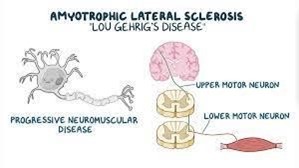A nurse is caring for a 9-month-old infant in a pediatric clinic. The child's guardian tells the nurse that the child has missed the scheduled 6-month immunizations. Which of the following responses should the nurse make?
"We can give your child all of the missed immunizations in one injection."
"Your child will have to start their immunization series over from the beginning."
"We will administer the immunizations your child missed today."
"We will give your child all of the needed immunizations at 12 months."
The Correct Answer is C
Choice A rationale:
Administering all the missed immunizations in one injection is not recommended and can lead to increased discomfort and potential adverse reactions.
Choice B rationale:
Starting the immunization series over is unnecessary and can delay the child's protection against vaccine-preventable diseases.
Choice C rationale:
The most appropriate action is to administer the immunizations the child missed at the earliest opportunity to catch up on the schedule.
Choice D rationale:
Waiting until 12 months of age is not necessary if the child has already missed scheduled immunizations. The catch-up schedule should be followed based on the child's current age.
Nursing Test Bank
Naxlex Comprehensive Predictor Exams
Related Questions
Correct Answer is C
Explanation
Choice A rationale:
Wearing splints over affected joints while sleeping is a strategy to prevent contractures, which are common in ALS.
Choice B rationale:
Dexamethasone is not used to treat muscle atrophy in ALS.
Choice C rationale:
As ALS progresses, clients may lose the ability to control their respiratory muscles, and a machine such as a ventilator may be required to assist with breathing.
Choice D rationale:
Nutrition through a central venous access device is not a standard intervention for ALS, as the focus is on preserving the client's ability to eat and swallow for as long as possible.

Correct Answer is A
Explanation
Choice A rationale:
A high-fiber diet is not recommended during acute inflammation, as it may be too abrasive for the inflamed bowel. Diverticulitis is a condition in which small pouches in the colon become inflamed and infected. A high-fiber diet can help prevent constipation and reduce pressure in the colon, which can aggravate diverticulitis.
Choice B rationale:
Soapsuds enemas are not typically used for diverticulitis. They can cause irritation and discomfort.
Choice C rationale:
Bending at the waist has no effect on diverticulitis and is not a relevant instruction.
Choice D rationale:
Fluid restriction can lead to dehydration and constipation, which can exacerbate diverticulitis. A client with diverticulitis should drink plenty of fluids to stay hydrated and soften the stool.
Whether you are a student looking to ace your exams or a practicing nurse seeking to enhance your expertise , our nursing education contents will empower you with the confidence and competence to make a difference in the lives of patients and become a respected leader in the healthcare field.
Visit Naxlex, invest in your future and unlock endless possibilities with our unparalleled nursing education contents today
Report Wrong Answer on the Current Question
Do you disagree with the answer? If yes, what is your expected answer? Explain.
Kindly be descriptive with the issue you are facing.
